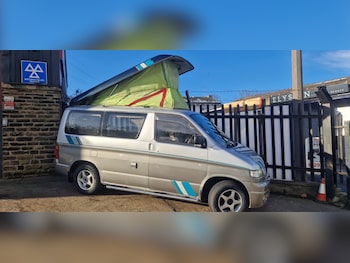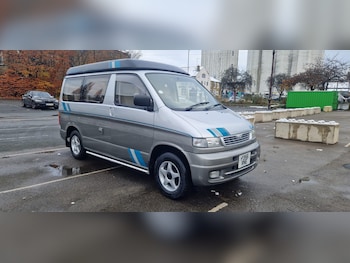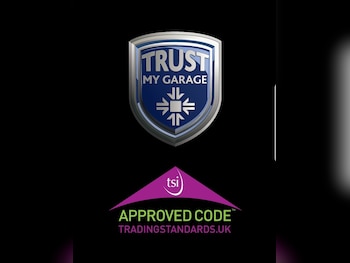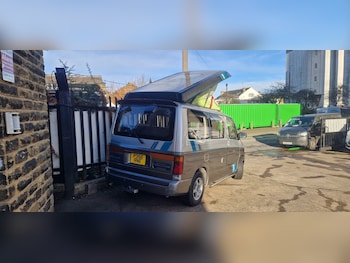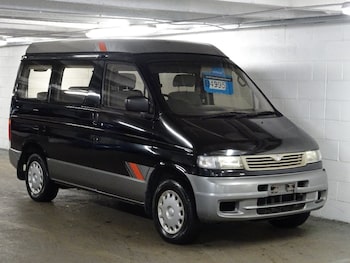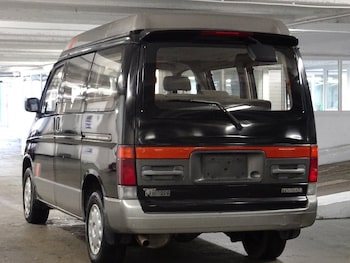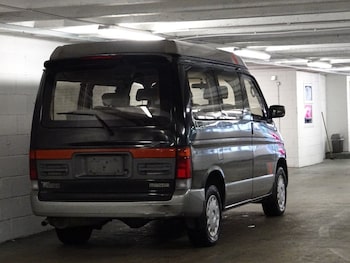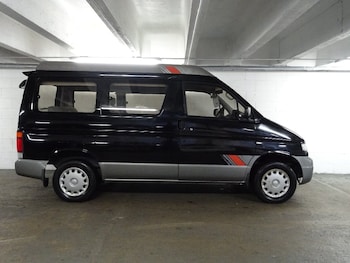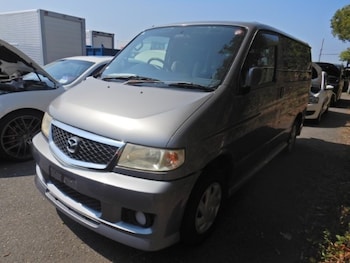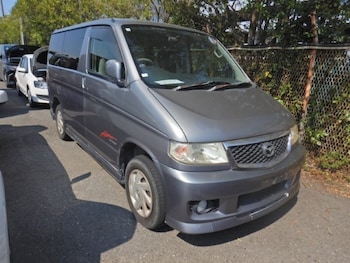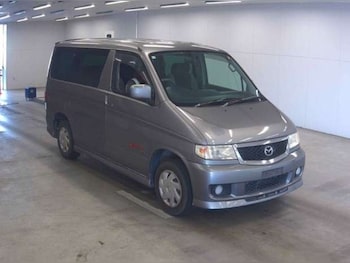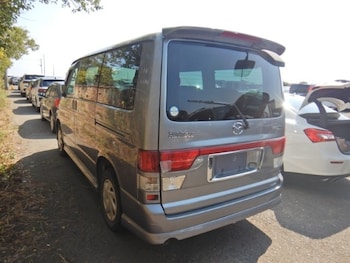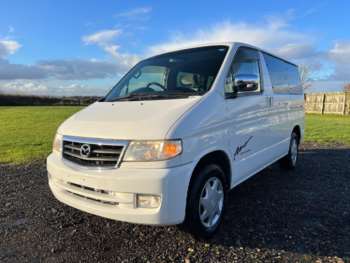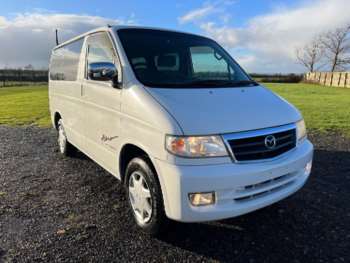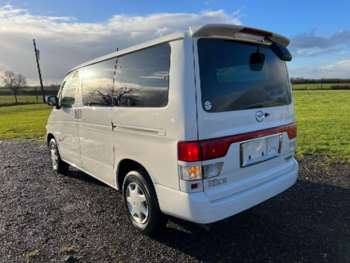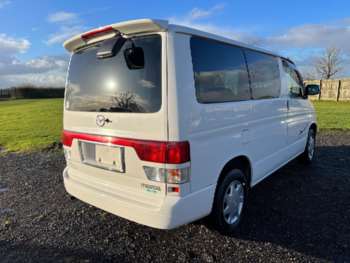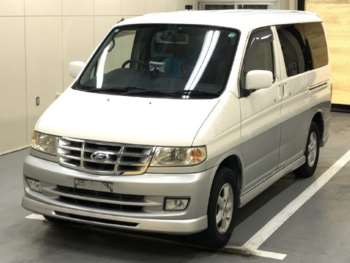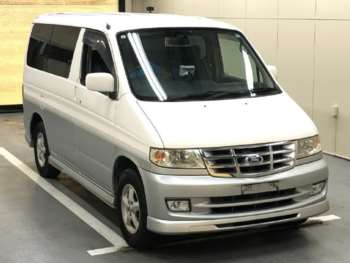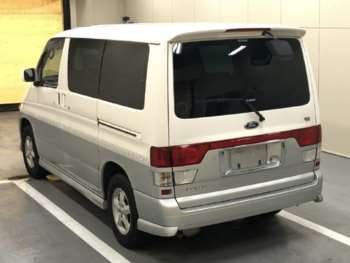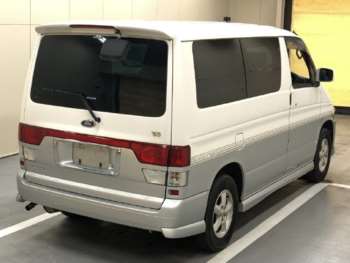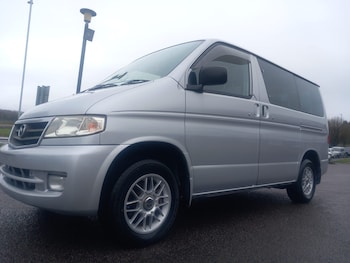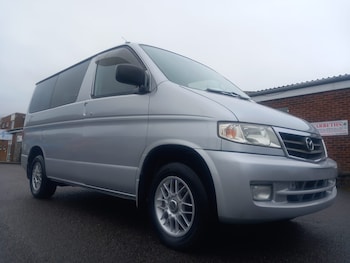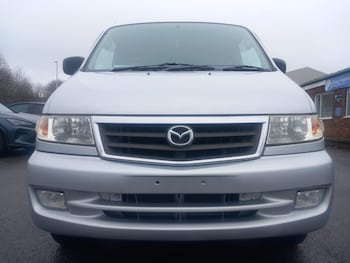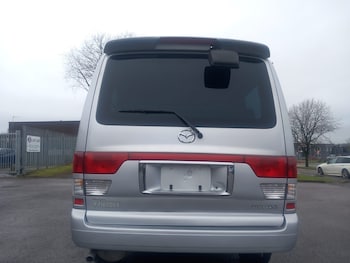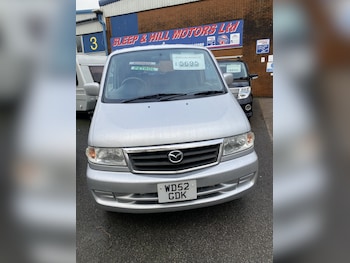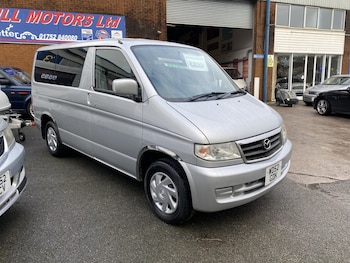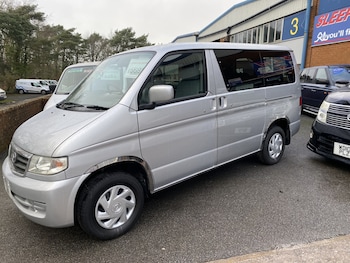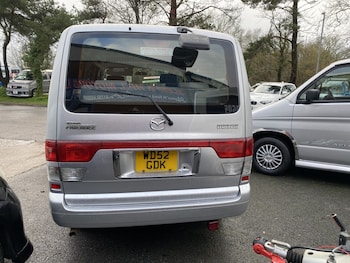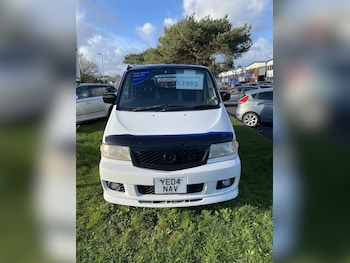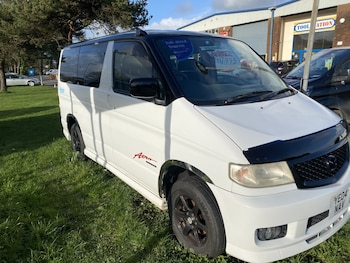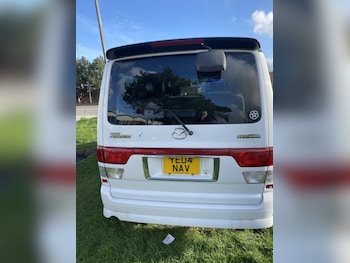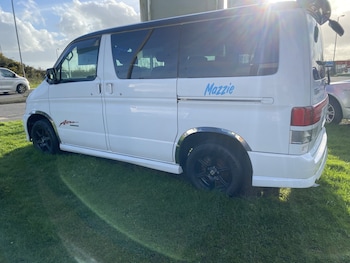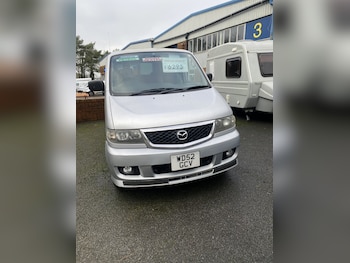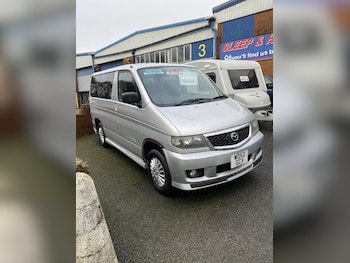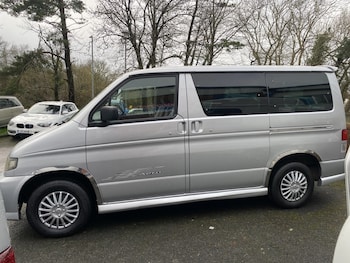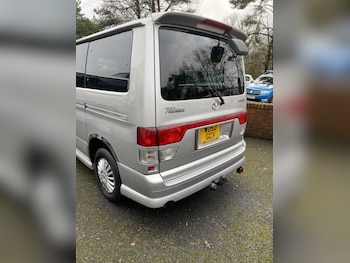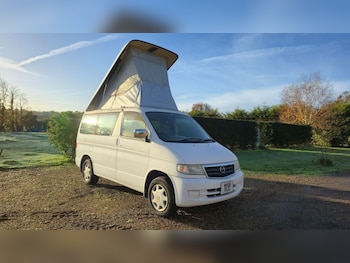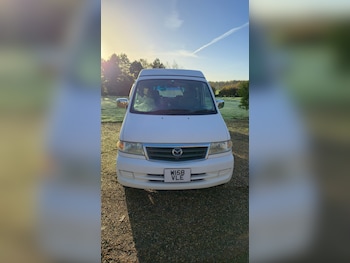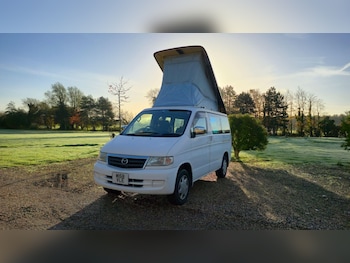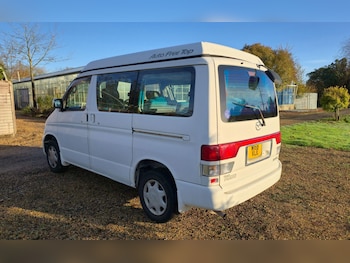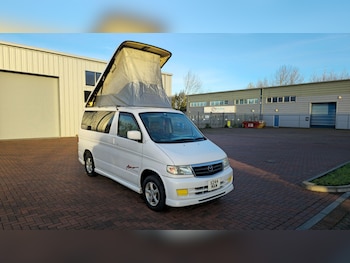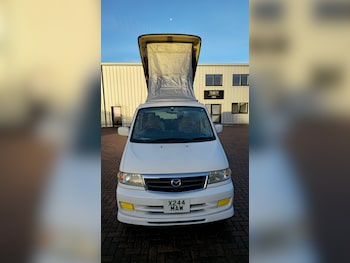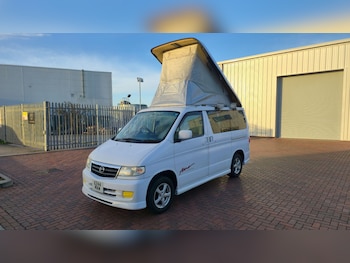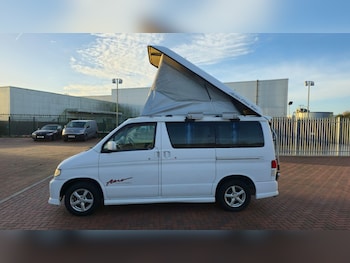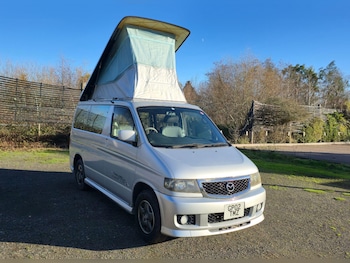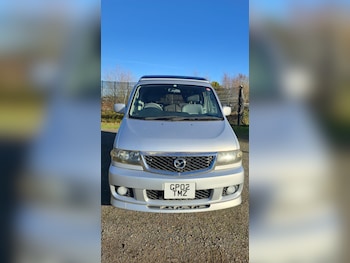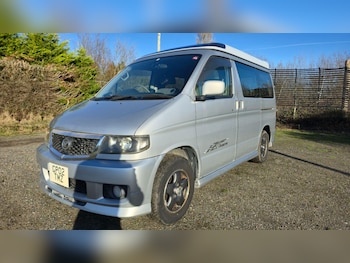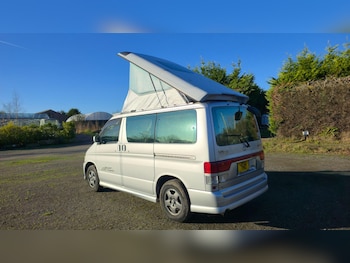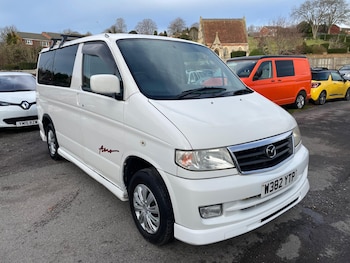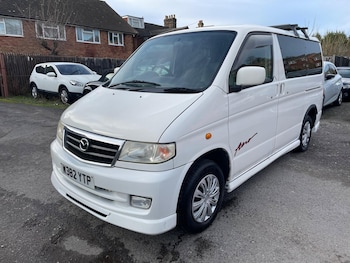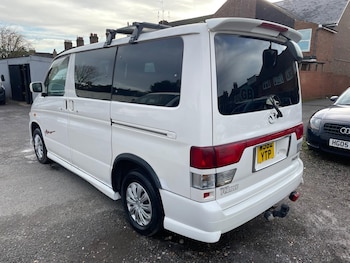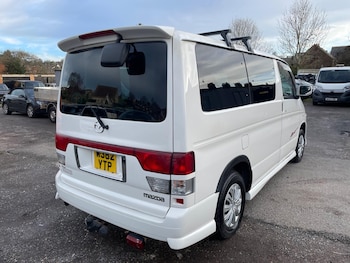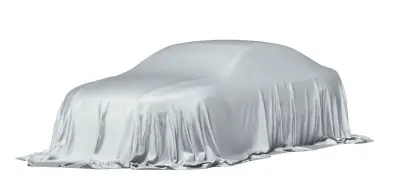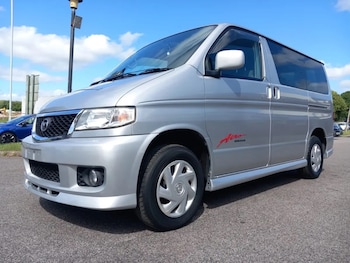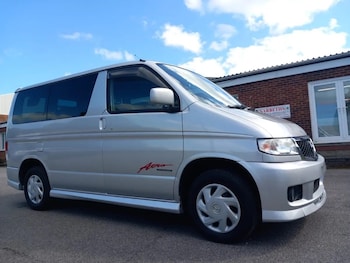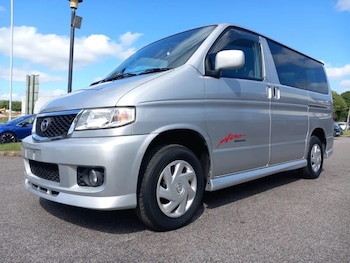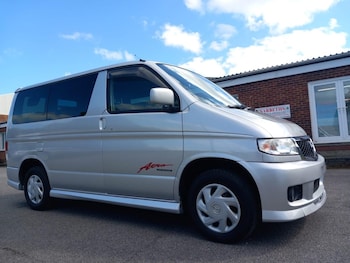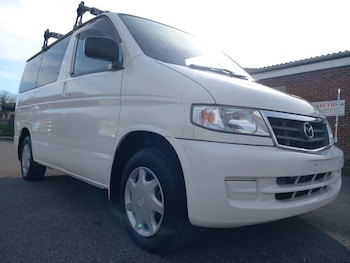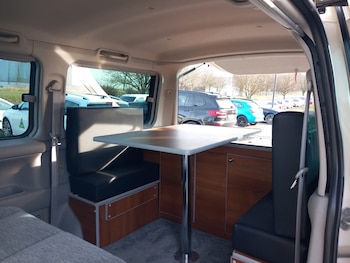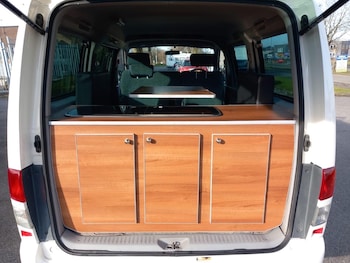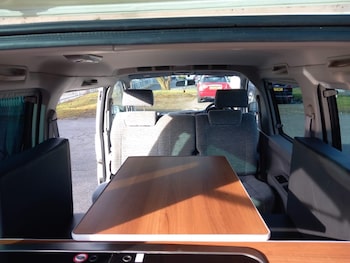Used Mazda Bongo cars for sale
If you're dreaming of weekend getaways and spontaneous adventures, the Mazda Bongo might just be your perfect companion. This compact campervan has built a loyal following amongst outdoor enthusiasts, weekend warriors, and families who crave flexibility without the bulk of a traditional motorhome. Whether you're browsing for a used Mazda Bongo for sale near you or simply curious about what makes this Japanese import so special, you've come to the right place.
Finding a used Mazda Bongo for sale in the UK can feel like discovering a hidden gem. These versatile vehicles offer a clever blend of practicality and comfort, making them ideal for camping trips, festivals, or even as a mobile workspace. At Cazoo, you can browse used Mazda Bongo cars for sale through our trusted partners, ensuring you get a reliable vehicle that's ready for your next adventure.
Why buy a used Mazda Bongo?
The Mazda Bongo stands out in the campervan world for several compelling reasons. First, it's refreshingly compact compared to larger motorhomes, making it far easier to navigate through town centres, park in standard spaces, and manoeuvre down narrow country lanes. You won't need a special licence to drive one either, which removes a significant barrier for many potential campervan owners.
Price is another major draw. A used Mazda Bongo offers remarkable value compared to newer European campervans. You're getting a vehicle that's been cleverly designed with camping in mind—often featuring pop-up roofs, rotating front seats, and fold-down beds—without the eye-watering price tag of a brand-new conversion.
The Bongo's Japanese engineering heritage means you're investing in a vehicle built to last. Mazda's reputation for reliability translates beautifully to the Bongo range, with many owners reporting years of faithful service with minimal fuss. Plus, the community of Bongo enthusiasts in the UK is wonderfully supportive, with forums, clubs, and meet-ups making it easy to share tips and find advice.
Mazda Bongo overview
The Mazda Bongo first appeared in 1966, though the models you'll typically find for sale in the UK date from the 1990s onwards. These Japanese-market vehicles were imported to Britain in significant numbers, where they quickly earned a reputation as affordable and practical campervans.
Most used Mazda Bongo vans you'll encounter are the third-generation models (1995-2005), which came with either petrol or diesel engines. The petrol 2.0-litre and 2.5-litre V6 engines are smoother and quieter, whilst the 2.5-litre diesel offers better fuel economy for longer journeys. Many examples feature four-wheel drive, which adds reassurance on slippery campsites or muddy festival fields.
The Bongo's party trick is its elevating roof, which creates standing room inside and often includes an additional sleeping area. Clever interior layouts typically accommodate four people comfortably, with seating that converts into beds and compact kitchen facilities tucked away efficiently. It's this thoughtful design that makes the Mazda Bongo campervan such a practical choice for weekend escapes.
Generations and variants
Early imports (1995-1999)
These earlier Bongos feature a more angular design and tend to be the most affordable options on the used market. They came with either the 2.0-litre petrol engine or the 2.5-litre diesel. Whilst they lack some of the refinements of later models, they're mechanically straightforward and parts remain reasonably available. The interiors are functional rather than luxurious, but that's part of their charm for many buyers seeking a no-nonsense camping vehicle.
Friendee/Bongo Friendee (1995-2005)
The Friendee variant is essentially the people-carrier version, which many have converted into campervans. These models offer a slightly more car-like driving experience and often come with better standard equipment. If you spot a Mazda Bongo 4x4 for sale, it's likely from this generation. The four-wheel-drive system isn't for serious off-roading but provides useful traction in challenging conditions.
Later models (2000-2005)
Later Bongos received subtle styling updates and improved interior quality. The 2.5-litre V6 petrol engine became more common, offering smoother performance, though fuel consumption is noticeably higher than the diesel. These models command slightly higher prices but often justify the premium with better overall condition and more refined driving dynamics.
What to look for when buying a used Mazda Bongo
Buying a used Mazda Bongo requires careful inspection, as these are imported vehicles with specific considerations. Here's what to check:
Service history and documentation: Verify the vehicle's import history and look for comprehensive service records. Regular maintenance is crucial for longevity, particularly for the diesel engines which benefit from consistent oil changes. Check the V5C logbook is present and correctly registered.
Rust and corrosion: Japanese vehicles weren't built with British weather in mind, so rust can be an issue, especially around the rear wheel arches, sliding door runners, and underneath. Inspect thoroughly before committing, paying particular attention to structural areas.
Pop-up roof mechanism: Test the elevating roof multiple times. Check the canvas for tears, the frame for damage, and ensure the mechanism operates smoothly without sticking. Replacement roofs can be expensive, so factor this into negotiations if problems exist.
Engine condition: Listen for unusual noises and watch for excessive smoke from the exhaust. The diesel engines are robust but can suffer if service intervals have been neglected. Petrol engines should run smoothly without misfiring. Check for oil leaks around the engine bay.
Camper conversion quality: Not all conversions are created equal. Assess the quality of any camping equipment, kitchen units, and electrical systems. Poor-quality conversions can cause problems down the line, so look for professional installations with proper certification where applicable.
Test drive thoroughly: Pay attention to how the vehicle handles, particularly the steering and brakes. Check the automatic transmission (if fitted) changes smoothly through all gears. Four-wheel-drive systems should engage without drama.
Frequently Asked Questions
How much does a used Mazda Bongo cost in the UK?
Prices for a used Mazda Bongo for sale UK-wide typically range from £5,000 to £15,000, depending on age, mileage, condition, and conversion quality. Basic vans without camper conversions sit at the lower end, whilst well-maintained examples with professional conversions and lower mileage command premium prices. The sweet spot for many buyers is around £8,000-£10,000, where you'll find decent examples with reasonable mileage and good conversion work.
Is the Mazda Bongo a reliable van or camper?
Generally, yes. The Mazda Bongo benefits from Japanese engineering standards and many owners report trouble-free ownership extending well into six figures on the odometer. The key to reliability is consistent maintenance and addressing minor issues before they become major problems. Diesel engines are particularly hardy when properly serviced, though parts availability can occasionally be a concern for older examples.
How long can a used Mazda Bongo last?
With proper care, a Mazda Bongo can easily exceed 200,000 miles. Many examples in the UK have already covered substantial distances before and after importation. The longevity depends heavily on maintenance history, usage patterns, and whether it's been protected from the elements. Regular servicing, rust prevention treatment, and sympathetic driving will extend its life considerably.
What are the common problems with used Mazda Bongo vehicles?
The most common issues include rust (particularly on older imports), automatic gearbox problems if not serviced regularly, and worn suspension components. Some owners report head gasket failures on petrol engines, though this isn't universal. The pop-up roof canvas can deteriorate with age and exposure to the elements. Electrical gremlins occasionally appear in amateur camper conversions. None of these issues are deal-breakers if addressed promptly.
Can the Mazda Bongo be used as a full-time camper?
Whilst possible, the Bongo is better suited to weekend trips and holidays rather than full-time living. Space is limited compared to larger motorhomes, and facilities are fairly basic. That said, some adventurous souls have made it work for extended trips, particularly in milder climates. For regular weekend use or summer touring, it's absolutely ideal.
